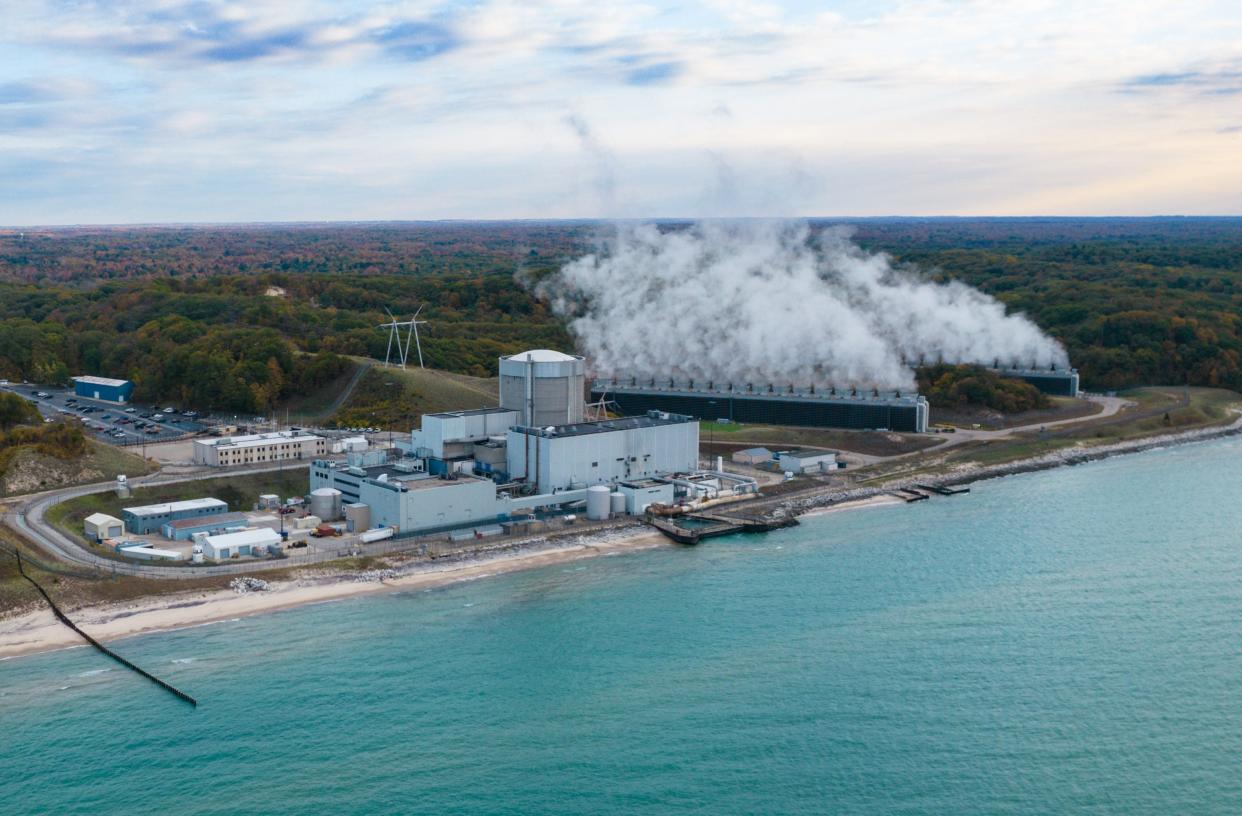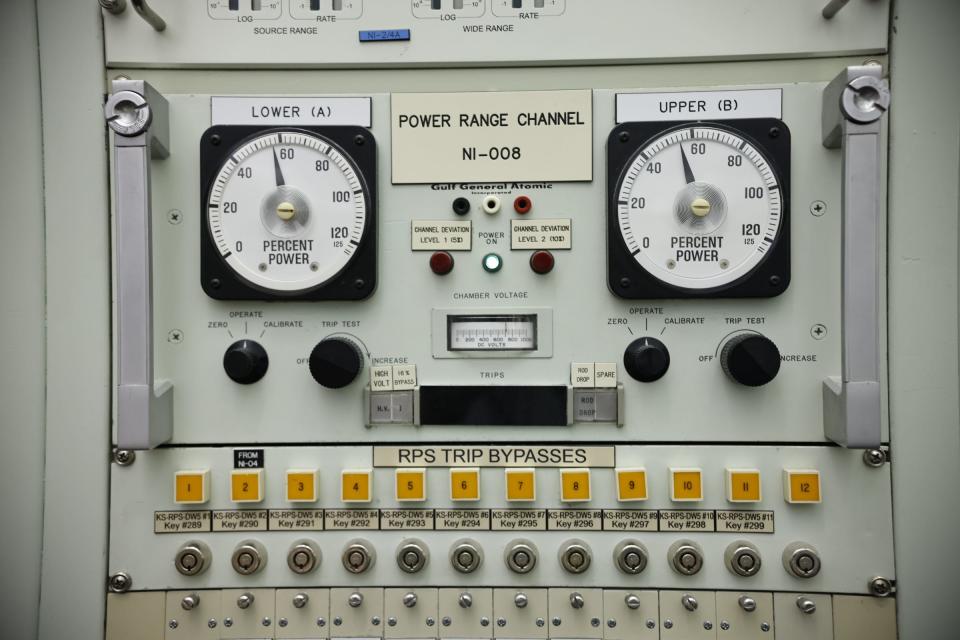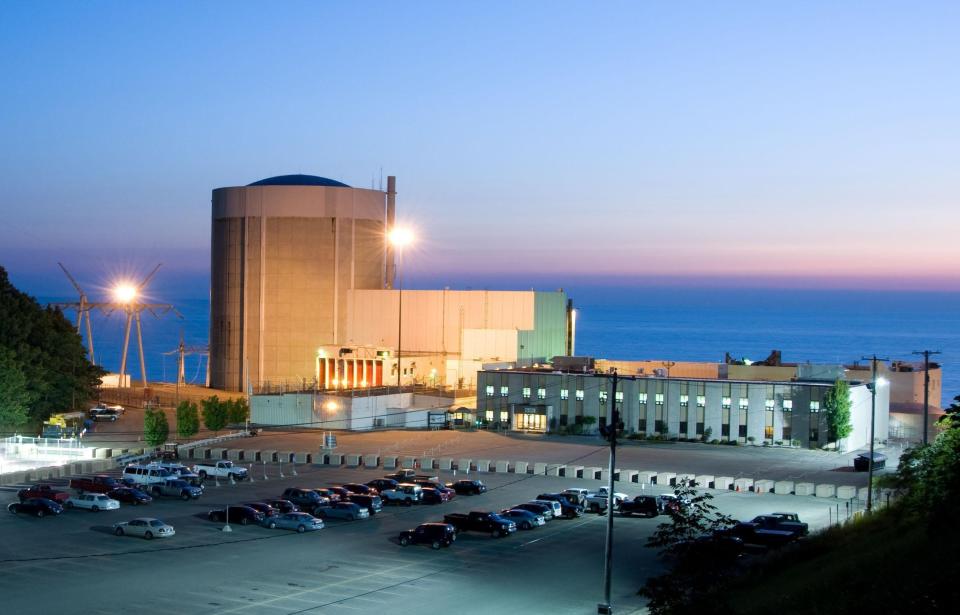My Take: We need nuclear power now as we face looming energy crisis in U.S.

On May 20, the Palisades Nuclear Plant split its last atom and was permanently shut down for decommissioning. This signifies the end of an era in West Michigan that began in 1971.
Originally constructed and operated by Consumers Energy, it was sold to Entergy in 2007, and will be sold again to Holtec for decommissioning upon removal of all fuel from the reactor core — currently scheduled to be completed in mid-June. Palisades accounted for approximately 6 percent of the state's total electrical generation and almost 20 percent of the state's carbon-free electricity. More importantly than that, Palisades was a reliable source of baseload generation. When Palisades was shut down, it had run 24/7 for 576 consecutive days.
Palisades is licensed to operate until 2031. Why are we shutting it down now? Quite simply, economics.
More: Palisades Nuclear Plant shut down last week despite Gov. Whitmer asking for more time
More: Palisades Nuclear Plant has shut down 10 days early, owners announce
Nuclear power is expensive, and due to technologies like fracking, can't compete against power sources like natural gas. As a source of carbon free generation, until recently, nuclear power was not afforded subsidies that other carbon-free power sources like solar and wind have enjoyed.

Recently, the federal government passed into law the bipartisan Infrastructure Investment and Jobs Act (P.L. 117-58). A portion of this law authorized and appropriated a $6 billion Civil Nuclear Credit aimed at supporting carbon free nuclear power. While I applaud the effort, it has come too late for Palisades to be impacted. Had this law been passed a year ago, Palisades would quite possibly have a different future.
The impact on the West Michigan community will be profound. Palisades employs 600 workers, supports over 1,100 regional jobs, and generates $363M in annual regional economic development. When Palisades shuts down, a little over half of the work force will no longer be employed there.
The University of Michigan Economic Growth Institute estimates there will be an immediate $51M in lost wages due to jobs losses. As decommissioning progresses, and more people are laid off, this number will only increase. Van Buren County receives about $15 million per year in property taxes, which allows the Covert School District to spend approximately $25,000 on each student in the district with zero money coming from the state foundation.

Palisades and its employees donate about $400,000/year to local nonprofits. This does not count the hundreds of volunteer hours spent supporting organizations such as South Haven Emergency Services, Habitat for Humanity, United Way, and We Care Food Pantry to name a few.
Nuclear power, more so than any other energy source, is very polarizing. There are those who are celebrating the closure citing examples like Chernobyl, Fukushima and Three Mile Island, all of which get sensationalized with made-for-TV documentaries. They will raise concerns over nuclear waste and portray it as cost prohibitive.
Then there are those of us who see nuclear power as an essential tool to help offset global warming, the need for a diverse energy policy, a reliable source of baseload generation, and pointing to the policies of other countries that recycle their nuclear waste.
Whatever side you take, it's not hard to make your case. What cannot be argued is the fact that our country is facing an energy crisis. In 2021, electrical consumption in the U.S. was almost 4 trillion kilowatt-hours. Our consumption has doubled over the past 40 years.
Our rise in energy consumption is driven by things such as new digital devices, smart homes and the advancement of electric vehicles intended to help meet our carbon-free energy policy goals. Combine that with an aging infrastructure and electrical grid and bad things are bound to happen.
Take the Northeast blackout in 2003 as an example. For the most part, we are oblivious to these things. We just assume the lights will always turn on when we flip a switch when in fact, there are already some areas of the country that are experiencing sporadic power outages during times of peak electrical use.
The Midcontinent Independent System Operator (MISO), which is responsible for operating the electric grid in our region published in its annual report last month that there is a high likelihood that this area will experience blackouts during peak demand periods this summer due to limited generating capacity.
Throw in recent global conflicts and it easy to understand why a diverse energy policy makes sense. That is why shutting down one of the top performing power plants in the country with at least 10 years of remaining life seems like a very short-sighted solution.
As the sun sets on Palisades' time, I would like to say thank you. Thank you to the 600 nuclear professionals working there. Thank you to the hundreds more who have come and gone over the years. Thank you for operating Palisades safely and protecting our community while providing an invaluable product for over 50 years.
— Mike Bailey is a resident of Zeeland.
This article originally appeared on The Holland Sentinel: My Take: We need nuclear power now as we face looming energy crisis in U.S.

